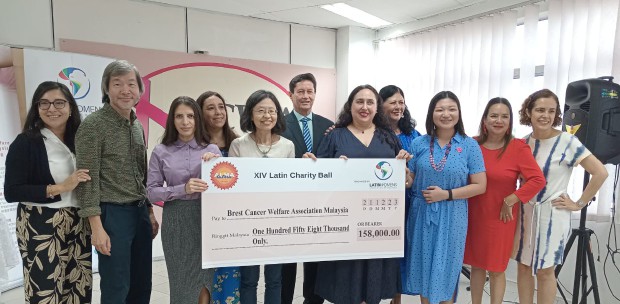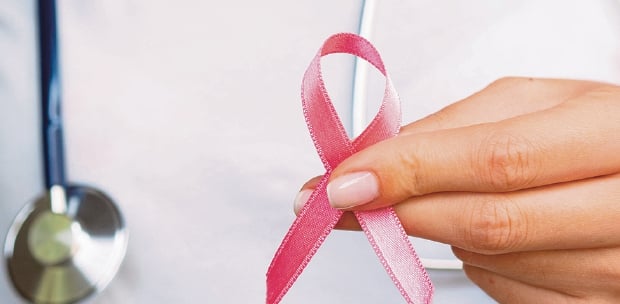DURING the Covid-19 pandemic, when she was jobless and facing an uncertain future, Kim Lim was forced to bear an additional burden.
She found a painless but hard lump in her breast. The thought that it might be cancer did not cross her mind because she had no family history of cancer or breast cancer. She chose to wait, hoping the lump would disappear or sort itself out.
"I was hoping I would wake up one day and it would have gone away, like a bad dream," says Lim.
It was an uncertain period in her life coupled with the challenges brought on by the pandemic.
But the three month wait only resulted in the lump growing bigger.
"I could see and feel it. It felt hard, like a golf ball," says Lim, president of the Breast Cancer Welfare Association (BCWA).
She was eventually diagnosed with Triple-Negative Breast Cancer (TNBC), a very aggressive form of breast cancer and by then it had already spread to her lymph nodes. She was only 39, then.
Lim says her experience has taught her that delay or denial doesn't benefit anyone. Anything suspicious should be checked out immediately.
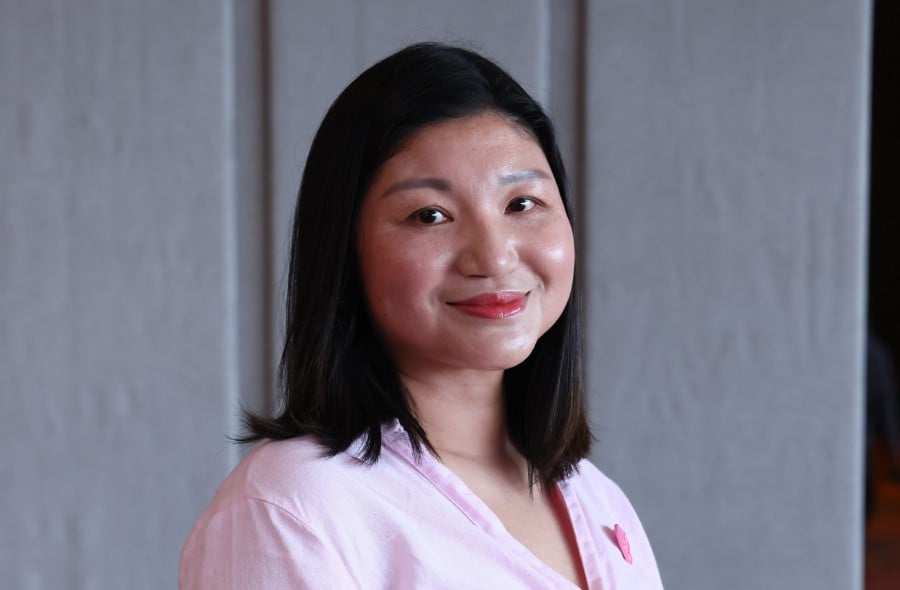
AGGRESSIVE, HARDER TO TREAT
In Malaysia, breast cancer remained the most commonly diagnosed cancer among women of major ethnic groups between 2012 and 2016. The incidence of TNBC ranged from 12.4 to17.6 per cent of total breast cancer cases in the country.
TNBC grows quickly, is more likely to have spread at the time it is detected and also more likely to recur after treatment.
TNBC does not have any of the receptors that are usually present within the breast tissue and breast cancer cells. These include the oestrogen (ER) and progesterone (PR) receptors, and a protein known as HER2 (human epidermal growth factor receptor 2). This makes TNBC more challenging to treat as it does not respond to certain types of treatment.
Typically, doctors would prescribe surgery, chemotherapy, or radiotherapy as part of a patient's treatment plan says consultant clinical oncologist Dr Jennifer Leong.
Due to the lack of ER/PR receptors and HER2 protein, certain treatments such as hormone therapy or targeted HER2 therapy are not suitable for TNBC patients.
"In recent years however, the availability of newer innovative therapies such as immunotherapy have afforded more treatment options for TNBC patients, giving them renewed hope to fight the disease," explains Dr Leong.
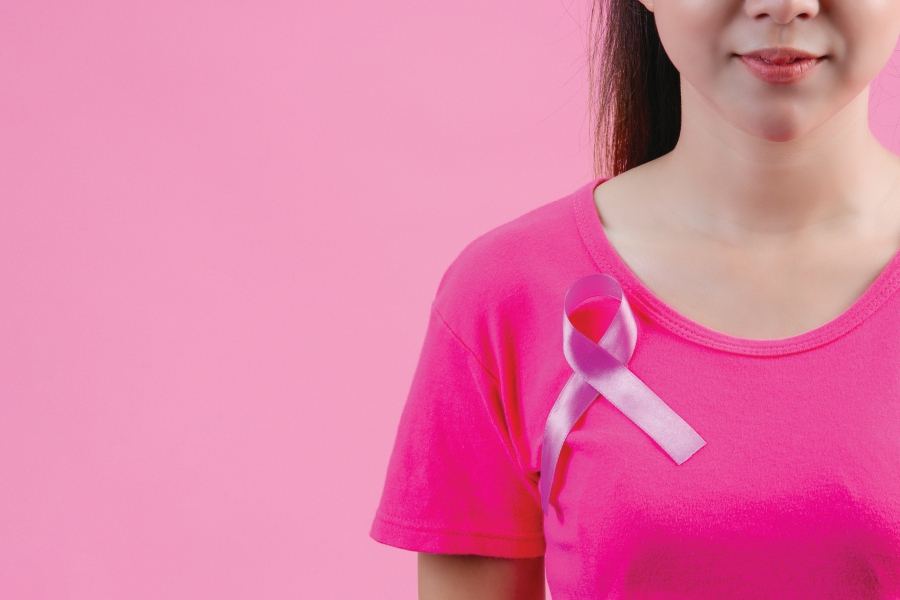
While breast cancer is widely talked about, many people may not realise that there are different types of breast cancer, each with its own unique characteristics, adds National Cancer Society Malaysia (NCSM) president and medical director Datuk Dr Saunthari Somasundaram.
"It is crucial that we step up efforts to arm the public with the right information on TNBC so that early detection and appropriate treatment can be administered in a timely manner to ensure a higher survival rate and better quality of life," she says.
NCSM, BCWA and Merck Sharp and Dohme (Malaysia) have come together under the "I Can, We Will" campaign to raise awareness on TNBC as well as strengthen the fight against this disease in Malaysia.
The campaign has adopted the tagline of "triple the facts, triple the fight" to encourage the public to learn more about TNBC so that they are equipped with the knowledge to fight the disease via early detection and appropriate treatment for the best possible outcomes.
Awareness and educational efforts on TNBC will be rolled out via various platforms, beginning with educational content on www.icanwewill.com.my
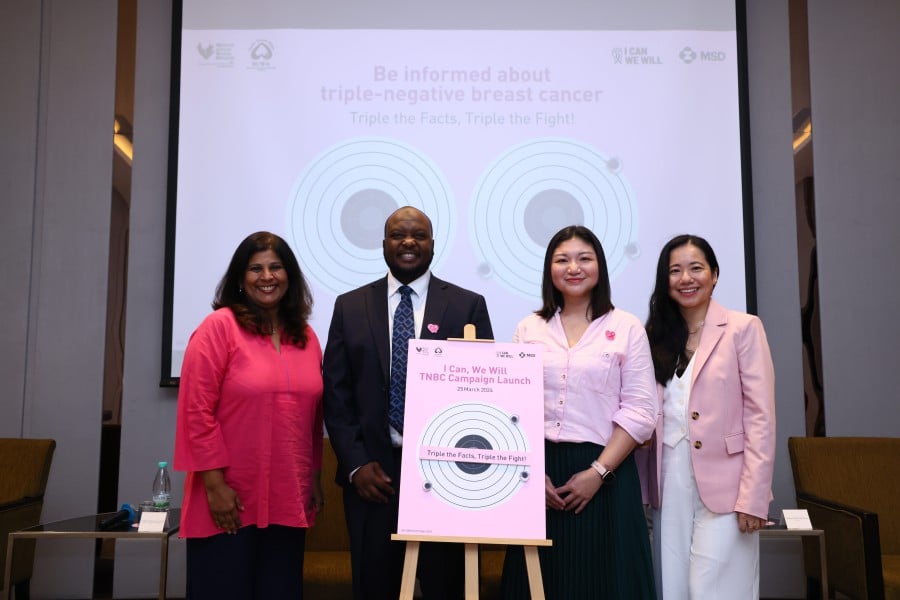
TNBC - Fast Facts
• More aggressive
• Likely to have spread when detected
• Harder to treat
• More likely to come back after treatment
• Tends to have a worse outlook
Breast Cancer - Common Myths
Myth:
"I won't get breast cancer if I don't have a family history of the disease"
Fact:
If you're a woman, you can get breast cancer. The key is recognising symptoms and detecting it early.
Myth:
"Breast cancer is an older woman's disease"
Fact:
In Malaysia, nearly 50 per cent of cases are detected in women below 50 years of age. Breast cancer can happen at any age.
Myth:
"If a lump is painless, it's not dangerous"
Fact:
Unfortunately, with breast cancer and most other cancers, the opposite is true. The lumps are often painless.


